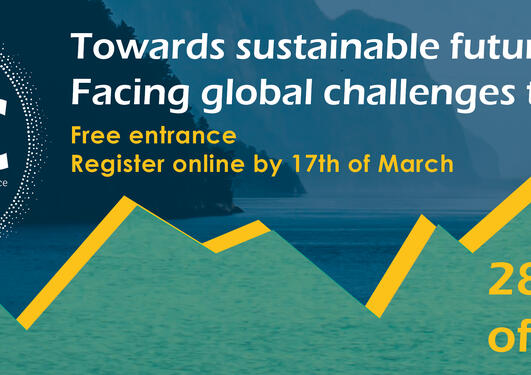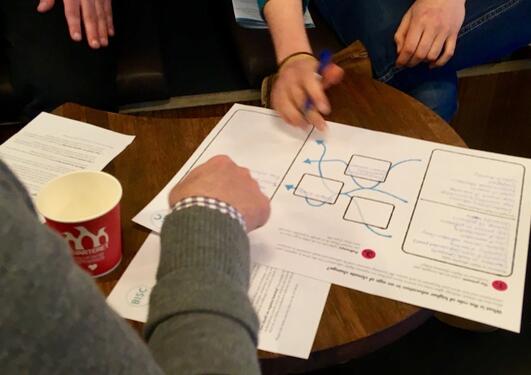Towards sustainable futures: students discuss solutions to global environmental issues

Main content
By Henri Kugler
Urban gardening, sustainable cities, renewable energy, climate change and an eclectic assortment of pressing socio-environmental issues of our times. Many compelling topics will be covered during the next Bergen International Student Conference (BISC 2019), which will be held at University of Bergen (UiB) on the 28th and 29th of March. Over one hundred students, from all over the world, are coming to Norway to discuss new ideas and solutions – from a cross-disciplinary perspective – to address problems that currently threat our planet's life support systems as well as the development of civilisation towards a more sustainable future.
Bergen is indeed a suitable scenario for such a discussion. “The city is a centre for marine harvesting and ocean-related activities that are directly related to climate issues and environmental challenges”, says human geography student Synnøve Beitnes, one of BISC's organisers.
UiB student Phani Manne, for example, will host a workshop on marine spatial planning at BISC. "Only healthy seas and oceans that are managed in a sustainable way will contribute to economic growth; the degradation of marine ecosystems is due to inefficient ocean governance", he writes.
Agroecology and food security will also be on the spotlight during BISC later this month. Student Liselotte Liegmann, from the Norwegian University of Life Sciences, will be talking about the Oslo experience when it comes to urban gardening in the context of urban development. Her studies show that "urban gardens in Oslo contribute to increasing the social sustainability of the city by integrating newcomers, bringing together different age groups and people of various backgrounds, by building community and beautifying the neighbourhood, by providing a sense of belonging and improving physical outdoor activity over sustained periods".
Studies on ecovillages; the development of a new mobile app to help creating sustainable personal routines; explorations on the links between consumption and social inequality; reflections on the United Nations’ Sustainable Development Goals and their implementation in vulnerable communities... These are some of the highlights participants will find at BISC – among other concerns and solutions that have been sparking reflection and enthusiasm on students, researchers and policy makers across the globe.
The conference will bring together representatives from different Norwegian universities, such as the University of Bergen, the Norwegian University of Life Sciences, University of Oslo, Norwegian University of Science and Technology, Norwegian School of Economics and The Arctic University of Norway. But the geographical diversity of BISC goes way beyond the Norwegian boundaries: institutions like the University of Toronto (Canada), University of Edinburgh (UK), Bonn University (Germany), University of Turku (Finland), Aalborg University (Denmark), Stockholm Resilience Centre, Uppsala University, Lund University and University of Gothenburg (Sweden) will also be represented in this unique gathering.
The event will be, of course, highly interactive and creativity will play a major role. There is even a project related to “eco-art” on the agenda. Another inspiring activity, at the end of the conference, will be the so-called 30-day challenge: participants will be encouraged to bring ideas that can be easily incorporated into their daily lives, with a positive impact on their individual or social environmental footprint. They will be encouraged to think about the roles that civil society, the private sector and governments may play to further address the environmental challenges that we face nowadays.
“It is good to see that BISC, being organized for the second year in a row, is now getting established as an annual conference for and by students”, says Kårstein Måseide, research coordinator at UiB’s Center for Climate and Energy Transformation (CET). “I have been impressed by the professionality and quality of what they have achieved so far.” He points out the fact that climate change is getting high on the agenda: “Being able to address the climate challenge is in many ways the foundation for other areas of development, such as poverty reduction, improved health and wellbeing.”



